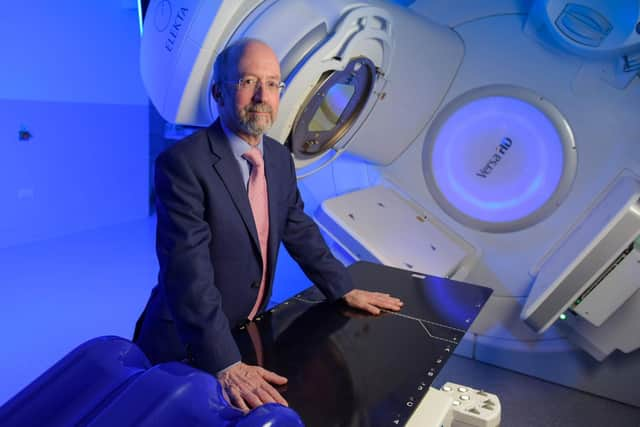Decades of work into cancer research could be ruined within months if focus doesn't shift from COVID, warns Leeds professor
and live on Freeview channel 276
With much of his work having been on pause, Prof David Sebag-Montefiore, a cancer doctor and researcher at the University of Leeds and Leeds Teaching Hospitals NHS Trust, is backing a new appeal from Cancer Research UK for donations to tackle the huge loss of funding for life-saving cancer research.
Following the cancellation of fundraising events like Race for Life, the charity is expecting a staggering £160m drop in income in the year ahead and as a result, Cancer Research UK has had to make the difficult decision to cut £44m in research funding - with more cuts still predicted.
Advertisement
Hide AdAdvertisement
Hide Ad

Prof Sebag-Montefiore said: “There has been a 90 per cent freeze on our normal research activity in our labs. The impact has been dramatic, substantially delayed our progress with existing projects and created major challenges to adapt to new and remote ways of working.
“As research labs start to re-open, we need to focus on the recovery of our cancer research activity. However, we can only do this with funding and support from the public.”
At the height of the pandemic, some of his research team returned to clinical roles and he also led rapid trials into the effectiveness of shorter rounds of radiotherapy rather then long chemotherapy treatments and said the results from this need to be analysed to determine future treatment models within the NHS and also plans in case of future pandemics.
Prof Sebag-Montefiore explained: "I led the rapid publication of international clinical guidelines for treating rectal cancer, supporting the use of a short and effective one-week radiotherapy treatment to replace a five-week course of radiotherapy and chemotherapy. This meant we could give effective treatment and reduce the risks to our patients of being exposed to COVID-19 and its consequences.”
Advertisement
Hide AdAdvertisement
Hide Ad“Although we saw restrictions on chemotherapy and surgery during lockdown, radiotherapy continued. We want to know how treatments changed and the outcomes of the patients treated. For example, some patients who could not undergo surgery received radiotherapy instead; and recent findings supported the use of shorter courses of radiotherapy for different cancers than those used prior to lockdown.
“We need to learn from this experience to help decide how we approach future waves or new pandemics.”
However, he also warned that research into cancer was facing a crisis despite survival in the UK doubling in the last 40 years.
He added: "Research into cancer is facing a crisis where years and even decades worth of work could be lost in a matter of months. Every day and every pound count, so I hope people will support Cancer Research UK and give what they can to help us keep making new discoveries."